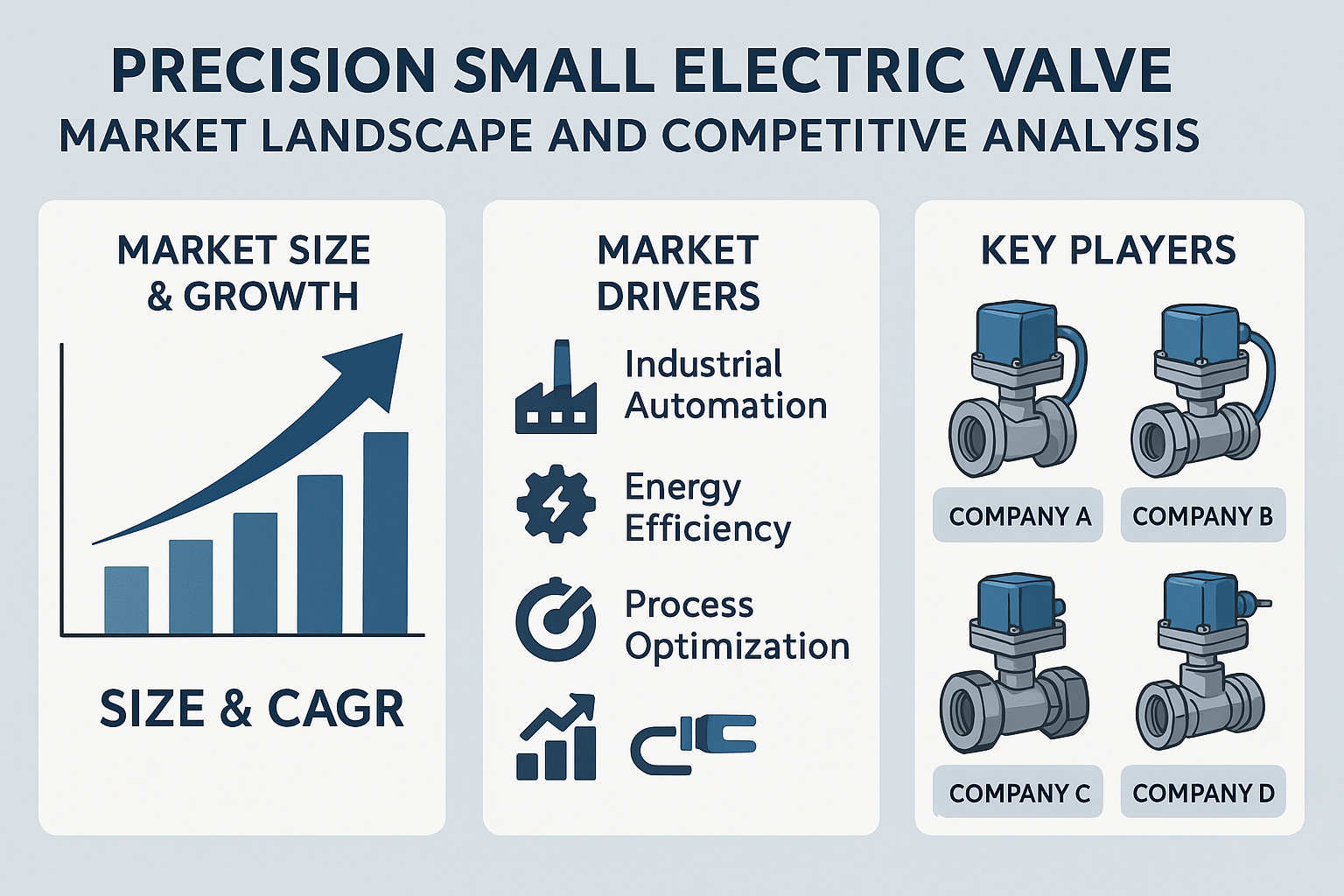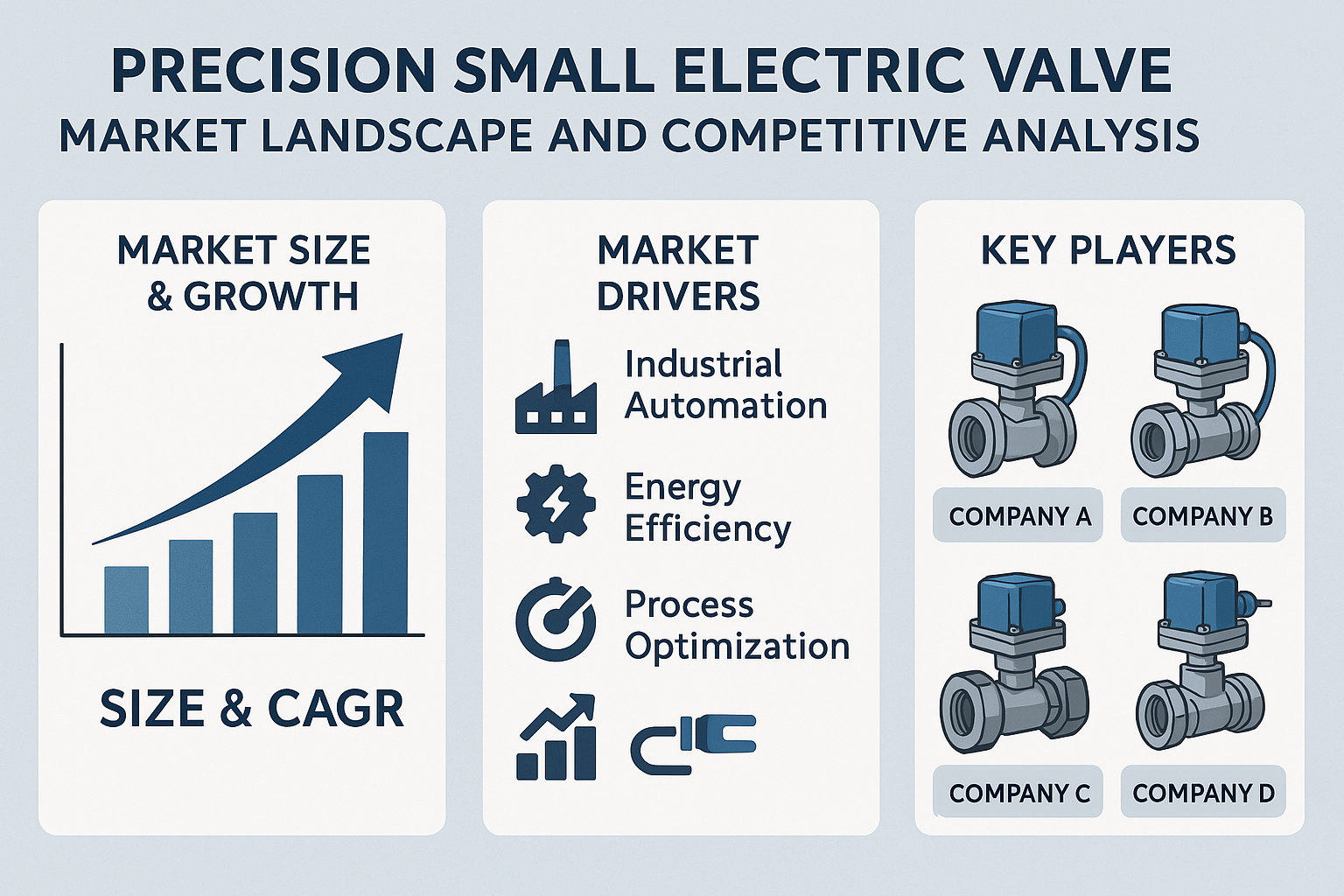The global precision small electric valve market is expanding at an annual growth rate of 8–10%, with revenues projected to exceed USD 2.5 billion by 2028.
The Asia-Pacific region leads in volume due to manufacturing upgrades and rising medical device demand, while Europe and North America drive high-end product growth on the back of stringent industry standards and advanced automation requirements.
Key Vendors and Product Comparison
| Manufacturer | Model | Flow Control Accuracy | Response Time | Price Range (USD) | Primary Applications |
|---|---|---|---|---|---|
| Emerson | ASCO Series E | ±0.5% | <20 ms | 200–500 | Semiconductors, Chemicals |
| Bürkert | Type 8691 | ±0.3% | <15 ms | 300–700 | Medical, Laboratory |
| SMC | VXZ Series | ±1.0% | <25 ms | 150–350 | Automated Production Lines |
| Parker | PV Series | ±0.4% | <18 ms | 250–600 | Aerospace, Automotive |
| Festo | VZQA/VZQB | ±0.7% | <22 ms | 180–450 | Electronics Manufacturing |
Key components—micromotors, sensor elements, sealing materials—are heavily dependent on imports. Material price fluctuations and geopolitical risks can affect delivery cycles and push up costs.
To enhance supply chain resilience, manufacturers are seeking local sourcing, building deeper partnerships with upstream and downstream suppliers, and complying with ISO 9001 and IATF 16949 certification standards to ensure consistent quality.
Pricing Models and Cost Drivers
Pricing for precision small electric valves is shaped by:
- R&D Investment: Calibrating ultra-high precision and material selection
- Raw Material Costs: Stainless steel, engineering plastics, imported seals
- Manufacturing Complexity: Micro-machining, assembly, and rigorous testing
- Economies of Scale: Higher annual volumes spread fixed costs more thinly
- After-Sales Services: Calibration, maintenance, and technical support packages
With the continuous development of intelligent manufacturing and medical electronics, competition in the precision small electric valve market will depend on product performance differentiation and supply chain collaboration.
Manufacturers that can strengthen core technology barriers while expanding global layout and service networks will occupy the largest market share in the next decade.
Post time: Jul-07-2025





